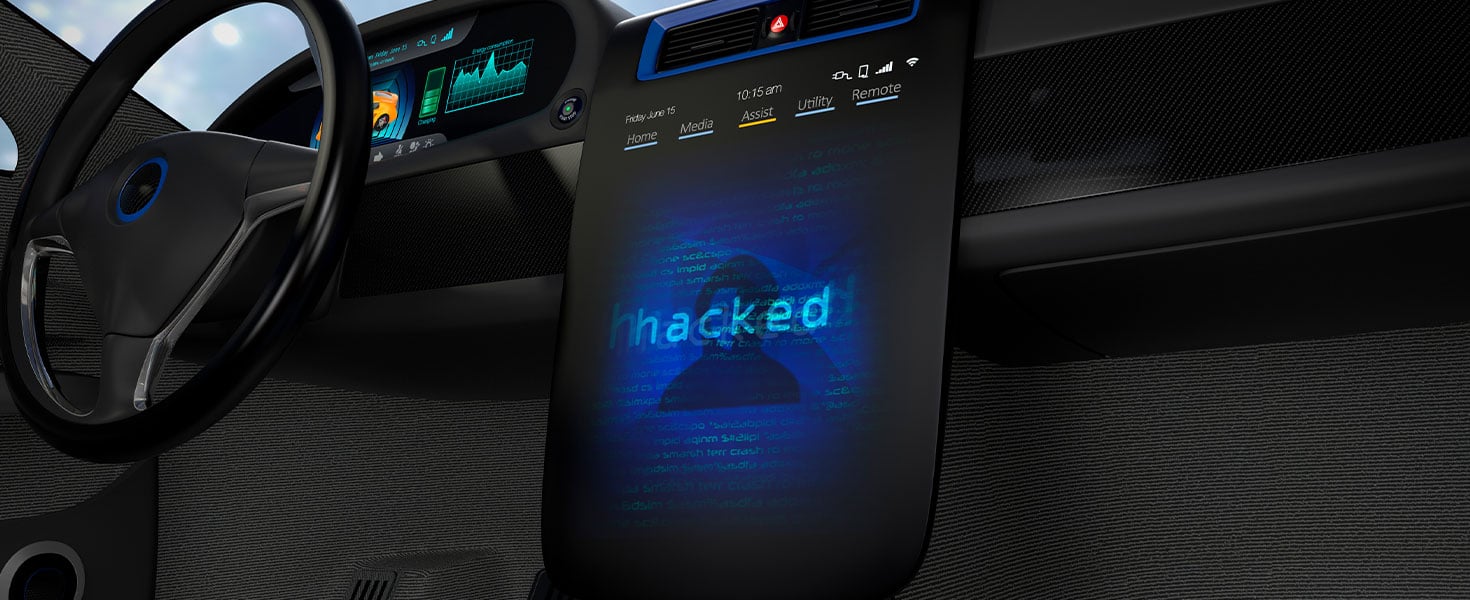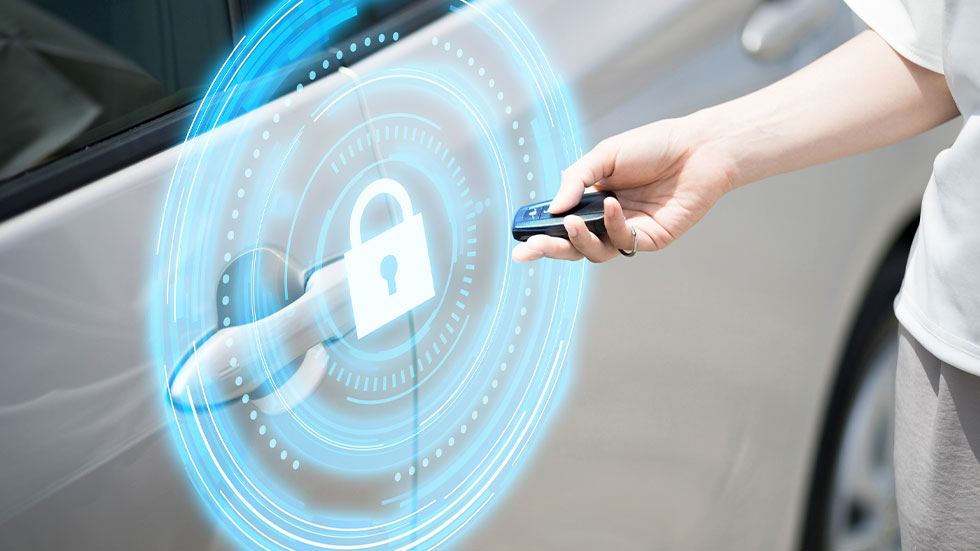How to Protect Your Car from Cybercrime
4 technologies at risk of cyberattacks in modern cars and how to fend off hackers


From autonomous driving to self-parking and collision avoidance, modern vehicles are fully functioning computers. Much like our mobile devices are more than just telephones, today's vehicles are more than just cars. They are equipped with innovative connectivity designed to make our lives easier.
But these high-tech advances comes at a price—they also make our vehicles more vulnerable to hackers. Our computers can be protected with antivirus software and our mobile devices can use encryption techniques to keep our data safe. But, vehicles with connectivity are increasingly becoming attractive targets for malicious hackers, ransomware attacks, and more.
Here's a look at some of the hacking incidents that have been reported in recent years and what you can do to protect your vehicle.

HOW CAN YOUR VEHICLE BE HACKED?
In extreme instances, white hat hackers have been able to take control of steering or braking in a vehicle. However, it's far more common for thieves to access personal data stored inside your vehicle to steal identities and passwords, or even adjust settings inside the vehicle. Here are some examples of the vulnerable technology inside your car, and a few tips for thwarting these attacks.
Remote Keyless Entry—The RF signal emitted by key fobs can be spoofed to unlock doors, turn engines on or off, or even steal your vehicle. To protect your fob and block any signals it sends, carry your key fob in a Faraday Bag or store it in a Faraday Box, blocking any signals it sends.
Onboard Browser and Apps—While a vehicle’s onboard web browser or app store may have built-in security measures, they will not likely compare to the level of security found on your smart devices. Remember to clear your browsing history and delete unnecessary apps.
Wi-Fi Network—Many modern vehicles come with onboard Wi-Fi, so it's critical to ensure your network is not discoverable or listed when in range of unknown users. If your vehicle is equipped with Wi-Fi access, never store your password inside the vehicle and ensure all security measures for the network are in place and operational.
USB Ports—These ports, while convenient for charging, may also connect to the internal systems within your vehicle, giving would-be hackers access to other areas of your vehicle, or to the item you are charging. Always be aware of devices you’re connecting to your vehicle's USB ports. You can also attach a USB anti-data hacker in any ports where you’d like an added layer of protection.

MORE WAYS TO PROTECT YOUR VEHICLE FROM CYBERATTACKS
There are a few more ways every driver of a connected vehicle can help protect themselves from cyberattacks.
Keep Systems and Firmware Updated—Staying on top of firmware and system updates for your vehicle is the best way to protect yourself from cyberattacks. Be sure to do the scheduled maintenance check-ups with your mechanic so that you’re always using the latest versions of operating systems, drivers, etc.
Pay Attention to Communication from Your Manufacturer—Always read any mail or email you receive from your auto manufacturer. Check these materials closely for any recalls or updates that address security threats to your vehicle’s onboard systems.
Secure Your Vehicle’s Connected Features—Wi-Fi, Bluetooth, and any other connectivity features should be locked down and protected. Ensure that any signals are password protected and undiscoverable by untrusted devices. For maximum security, you should turn these systems off when not in use.
Limit the Information Stored in Your Vehicle—Avoid storing things like your account numbers, home address, passwords, or other sensitive information in your vehicle’s onboard system whenever possible. Use your smart devices—which are more likely to have maximum protection—to access your personal information.
